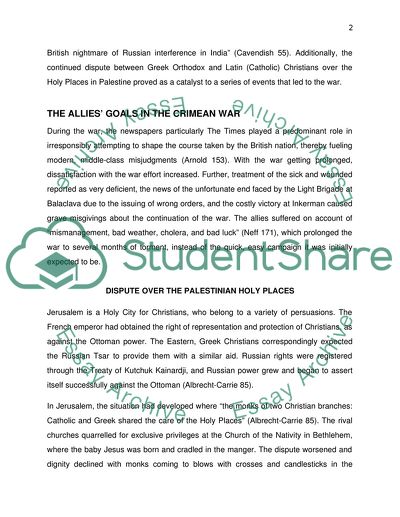Cite this document
(“The Causes of the Crimean War: the Allies Goals Essay”, n.d.)
Retrieved from https://studentshare.org/miscellaneous/1562731-the-causes-of-the-crimean-war-the-allies-goals
Retrieved from https://studentshare.org/miscellaneous/1562731-the-causes-of-the-crimean-war-the-allies-goals
(The Causes of the Crimean War: The Allies Goals Essay)
https://studentshare.org/miscellaneous/1562731-the-causes-of-the-crimean-war-the-allies-goals.
https://studentshare.org/miscellaneous/1562731-the-causes-of-the-crimean-war-the-allies-goals.
“The Causes of the Crimean War: The Allies Goals Essay”, n.d. https://studentshare.org/miscellaneous/1562731-the-causes-of-the-crimean-war-the-allies-goals.


